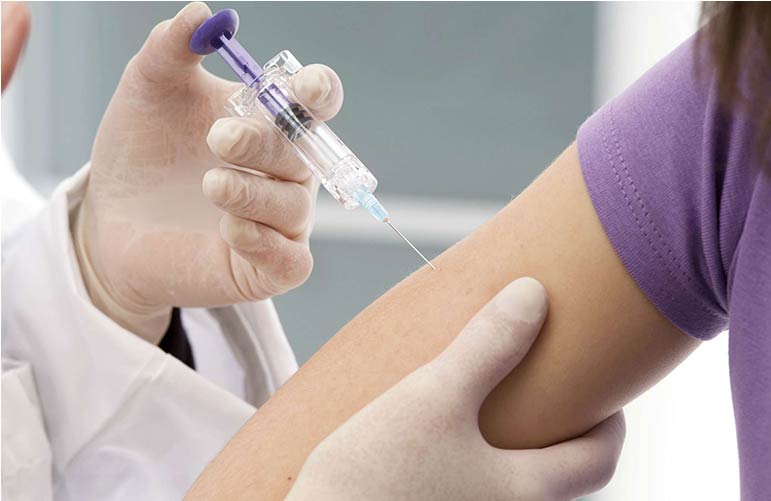
Cervical Cancer Vaccination
Vaccines are medications that assist the body in fighting disease. Immune systems can be trained to detect and eliminate harmful bacteria and cells when they are exposed to them. Numerous vaccines will be given to you throughout your life to protect you from common illnesses. There are also cancer vaccines. Cancer vaccines are both prevention and treatment vaccines.
Vaccines are available to protect healthy people from certain cancers caused by viruses. These vaccines, like those used to prevent chicken pox or the flu, protect the body from these viruses. This type of vaccine will only work if the person receives it before becoming infected with the virus.
The U.S. Food and Drug Administration (FDA) has approved two types of cancer vaccines:
The HPV vaccine. Human papillomavirus (HPV) is protected against by the vaccine. Certain types of cancer can be caused by this virus when it remains in the body for an extended period of time. HPV vaccines have been approved by the FDA to prevent:
- Cervical, vaginal, and vulvar cancers
- Anal carcinoma
- Genital warts
Vaccines used for cancer treatment are called treatment vaccines or therapeutic vaccines. They are part of immunotherapy cancer treatment. In order to fight cancer, they boost the body's immune system. Cancer patients are given treatment vaccines by doctors. Different treatment vaccines function in various ways. They are able to:
- Prevent the spread of cancer
- After treatment, destroy any cancer cells that remain in the body
- Stop a tumor's growth or spread
A cancer vaccine enhances the immune system's ability to detect and destroy antigens. Often, cancer cells have cancer-specific antigens on their surface that healthy cells do not. These molecules act as antigens when a person receives a vaccine. Cancer cells with these molecules on their surfaces instruct the immune system to search for and destroy them.
Some cancer vaccines can be customized. Customized vaccines are intended only for one person. These vaccines are made from tumor samples obtained during surgery. Other cancer vaccines are not personalized and target cancer antigens that are not unique to each individual. Patients with tumors containing these antigens on the surface of their cells are administered these vaccines.
